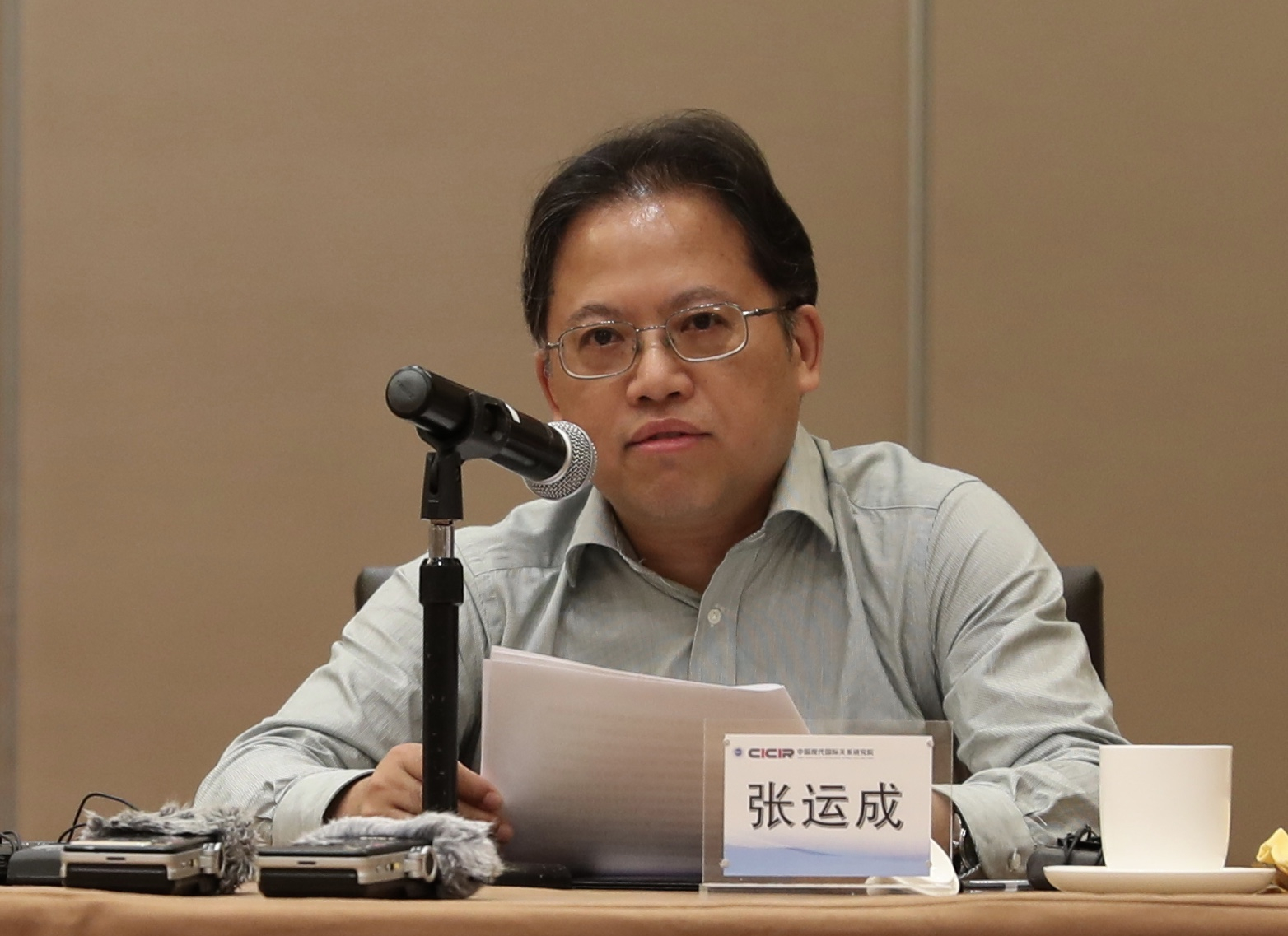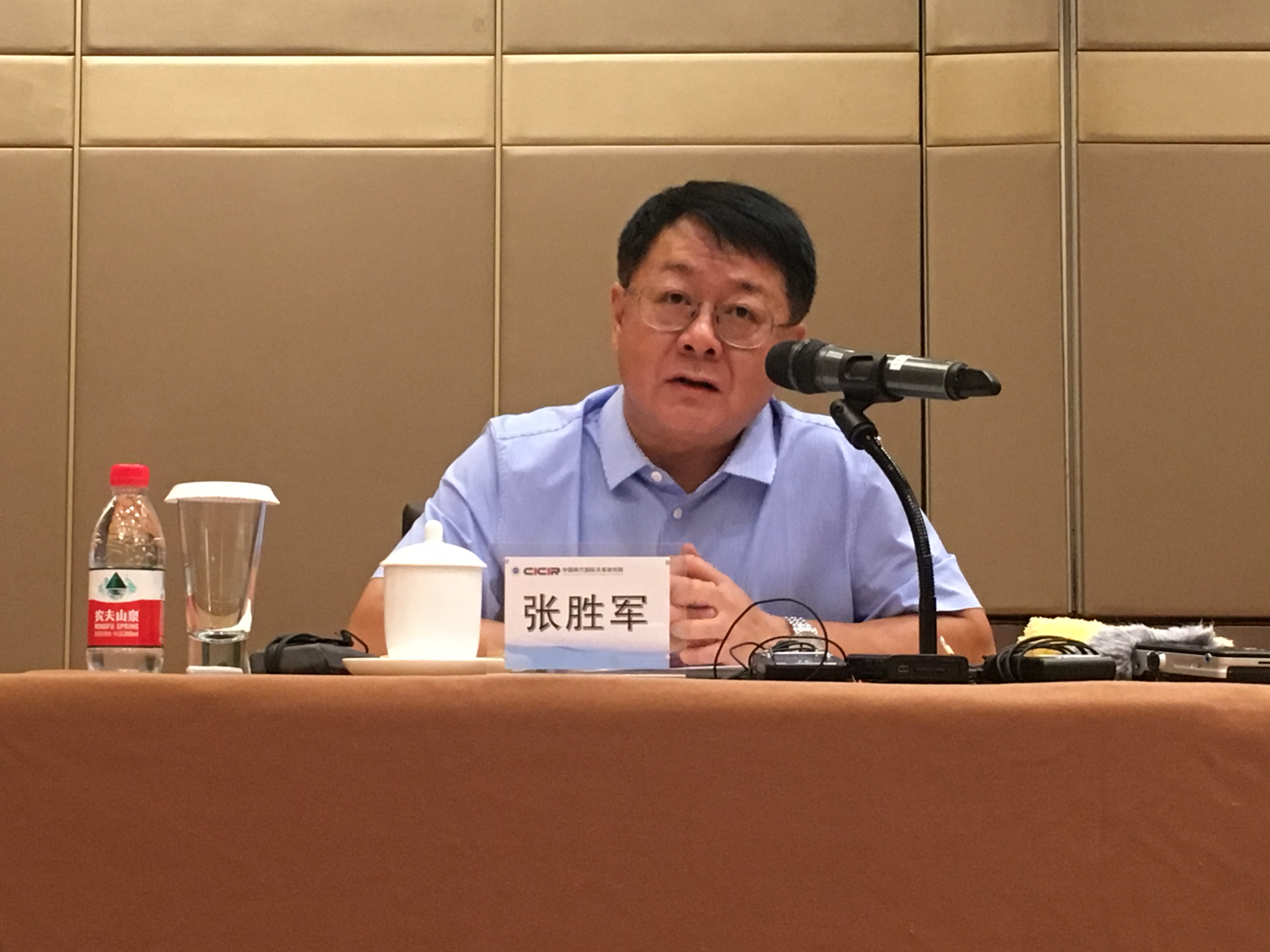

Researchers issue fresh warnings about the harm that China-U.S. trade tensions will bring to both countries, and the world.
Top academics gathered in Beijing for a seminar on China-U.S. trade ties held by the Chinese Institute of Contemporary International Relations. New tensions were sparked Monday when the U.S. Treasury Department called China a currency manipulator.
This followed U.S. president Donald Trump's slapping of a 10 percent tariff on 300 billion U.S. dollars' worth of Chinese imported goods. In response, China suspended its purchases of U.S. agricultural products. Experts say the newly-planned tariffs are irrational and that the U.S. should find internal causes for their own weakening economy.

Zhang Yuncheng, Director of China Institute of Contemporary International Relations, speaking at the seminar. /CGTN Photo
"The 2018 figures show that the U.S. external trade deficit increased by 12.1 percent, and the deficit with China increased by 11.7 percent. We advise the U.S. to solve its own economic structural problems, and stop blaming others for its own problems," said Zhang Yuncheng, director of the China Institute of Contemporary International Relations.

Zhang Shengjun, Director of Institute of International Relations of Beijing Normal University, speaking at the seminar. /CGTN Photo
"The U.S. is trying to replace global governance with unilateralism, within the governance of the U.S. This does harm to international markets, and violates international law. We need to be alert to the possible consequences of these actions by the U.S. If this continues, it may take many years to return to today's level of global governance," said Zhang Shengjun, director of the Institute of International Relations of Beijing Normal University.

Copyright © 2018 CGTN. Beijing ICP prepared NO.16065310-3
Copyright © 2018 CGTN. Beijing ICP prepared NO.16065310-3